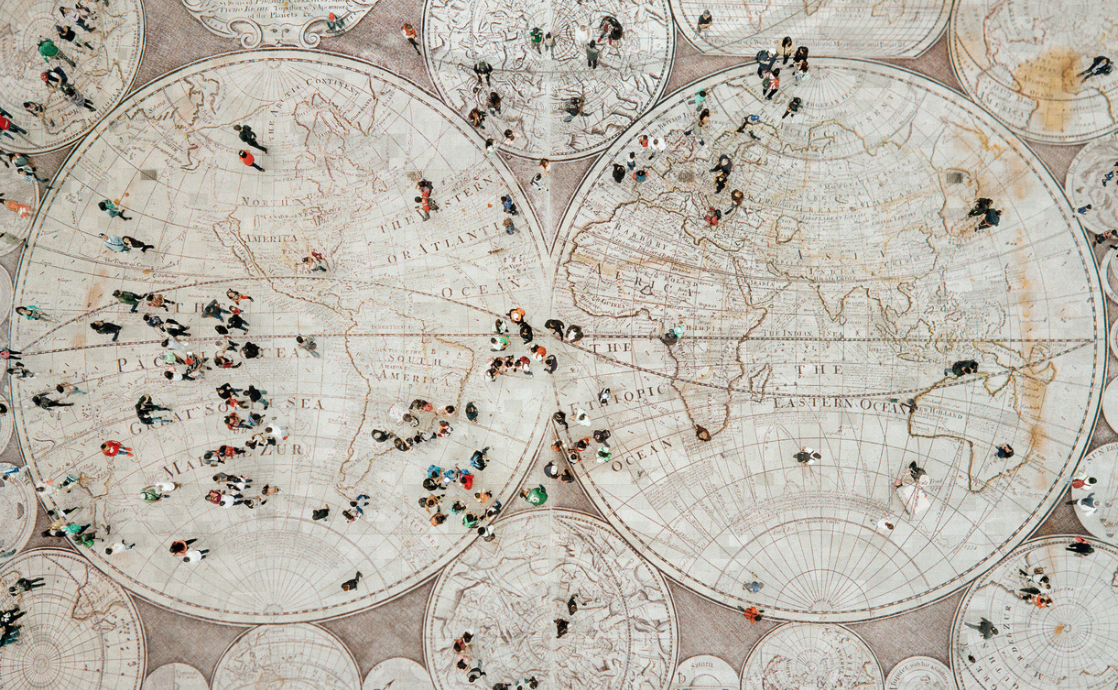The intersection of Immanuel Kant’s philosophical framework and the Bahá’í perspective presents a rich tapestry of ideas concerning the aspiration for a global civilizational paradigm. This discourse addresses the pertinent observation that both Kantian and Bahá’í ideals converge upon the notion of a ‘world republic’—a conceptualization that seeks to transcend artificial barriers while embracing the inherent dignity of all human beings. This profound notion invites a deeper exploration of the philosophical underpinnings and spiritual implications associated with the creation of a united global society based on justice, equity, and collective prosperity.
Kant’s contribution to ethical philosophy, particularly through his formulations of duty and moral autonomy, lays a foundational bedrock for understanding the role of individual agency in the quest for a world republic. Central to Kant’s philosophy is the notion of “perpetual peace,” articulated in his 1795 essay of the same name. Here, he elucidates the preliminary conditions required for sustainable peace, emphasizing the necessity for republican forms of government, international cooperation, and the establishment of a federation of free states. Kant’s vision is predicated on the moral imperative that individuals ought to act in ways that could be universally enacted, fostering a sense of accountability that extends beyond national boundaries. This ethical framework resonates with Bahá’í teachings, which advocate for the oneness of humanity and the importance of fostering harmonious relations among diverse peoples.
From a Bahá’í perspective, the concept of a world republic is not merely an abstract ideal; it is an imperative rooted in the recognition of the unity of mankind. The Bahá’í Faith posits that humanity is like a single organism, necessitating the cultivation of an environment where every individual is afforded equal rights and opportunities. Abdu’l-Bahá, the son of the founder of the Bahá’í Faith, articulated this vision with eloquence, emphasizing that the establishment of universal peace is contingent upon the eradication of prejudice and the promotion of justice. The correlation between Kant’s notions of moral law and the Bahá’í commitment to social justice illuminates a shared ethical horizon, suggesting that an interconnected global society requires a robust moral framework that recognizes the sanctity of all life.
Moreover, the convergence of Kantian thought and Bahá’í principles underscores the necessity for international institutions that transcend the limitations of nation-states. Kant foresaw the establishment of a cosmopolitan order where global governance could operate based on democratic ideals, mutual respect, and the rule of law. Similarly, Bahá’í teachings advocate for the establishment of a global governing body, which would facilitate the equitable distribution of resources and address complex global challenges such as climate change, poverty, and conflict. The Bahá’í commitment to collective action reflects a belief in the need for systematic approaches to societal problems—an ethos that resonates deeply with Kant’s vision of collaborative peace-building.
The examination of educational paradigms represents another profound area of intersection between Kantian and Bahá’í teachings. Kant’s insistence on education as a cornerstone of moral development aligns with the Bahá’í understanding of knowledge as a transformative force for personal and societal evolution. Education, in both paradigms, serves as a conduit for fostering critical thinking, moral discernment, and a sense of interconnectedness among individuals. The Bahá’í approach to education—encompassing both spiritual and material dimensions—illuminates the importance of nurturing virtues while simultaneously promoting academic excellence. This duality produces well-rounded individuals equipped to engage in ethical decision-making and contribute to the betterment of society. Thus, the synthesis of Kant’s educational philosophy with Bahá’í teachings augments the pursuit of a more enlightened citizenry capable of realizing the ideals of a world republic.
However, challenges persist regarding the actualization of this envisioned global society. Kant recognized the propensity for power struggles and moral failings inherent in human nature. The paradigm shifts necessary to establish a world republic demand not only structural changes to governance but also a profound transformation in collective consciousness. The Bahá’í approach underscores that such transformation begins with the individual—engendering a sense of moral responsibility that extends beyond local and national divides. The cultivation of virtues such as compassion, empathy, and justice is pivotal in facilitating the transitions required for global unity. As both thinkers elucidate, the act of fostering a cooperative global community requires grappling with the nuances of human behavior, societal structures, and the complexities of justice.
In conclusion, the dialogue between Kantian philosophy and Bahá’í teachings presents a compelling narrative advocating for a world republic. Both frameworks, while distinct in their origins and expressions, offer profound insights into the ethical obligations humanity bears towards one another. The aspiration towards a unified global society is ingrained in the call for justice, moral development, and the intrinsic interconnectedness of all people. As global citizens, the challenge lies not only in articulating these ideals but also in embodying them through active engagement and altruistic endeavors. The realization of a world republic, therefore, rests upon the twin pillars of ethical philosophy and spiritual commitment—an endeavor worthy of contemporary exploration and engagement.
